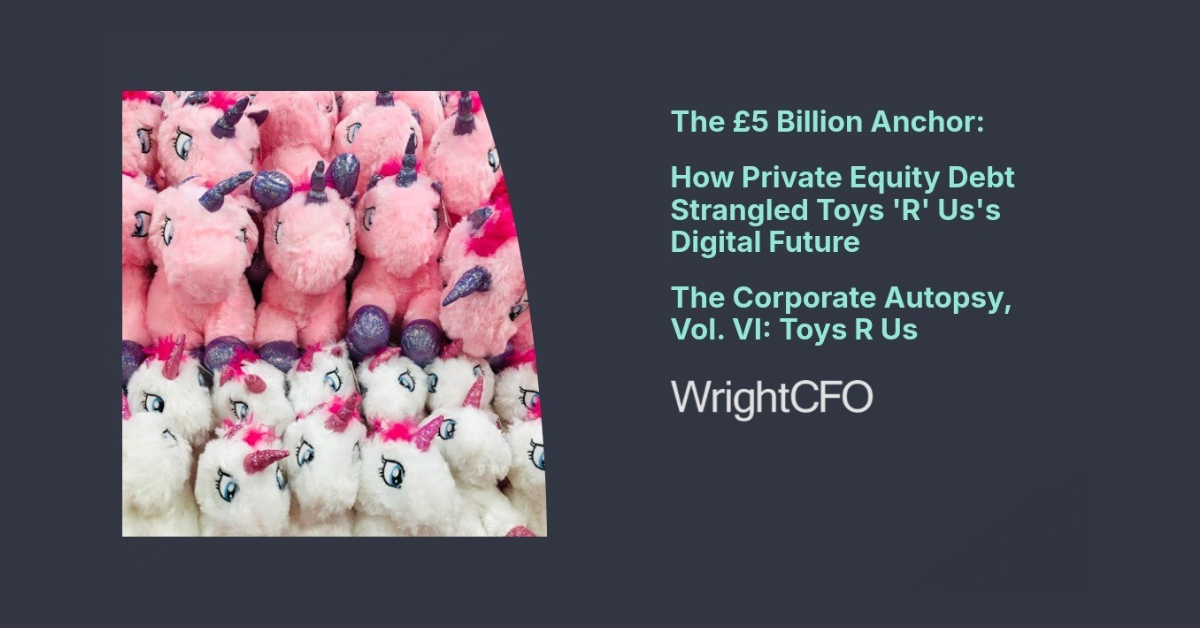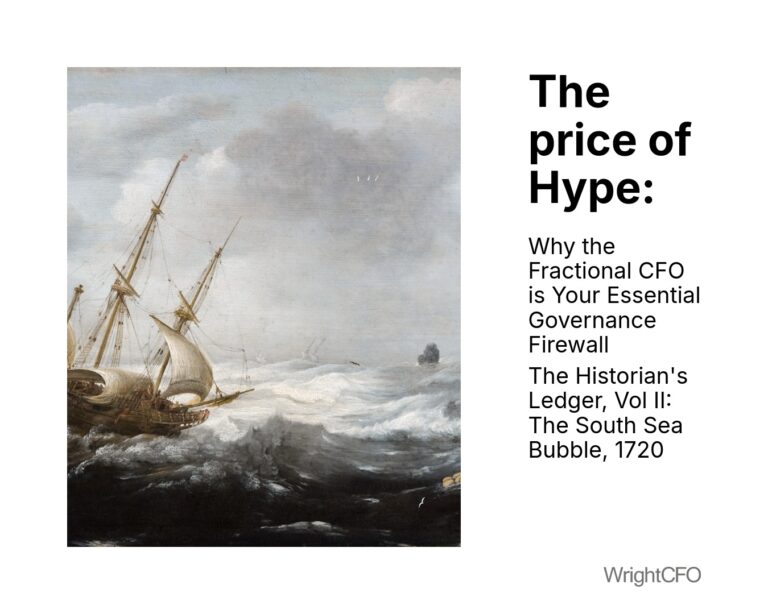Kids Company Financial Failure: Why Mission Can Never Outrank Money
Kids Company’s financial failure stands as one of the most high-profile charity collapses in the UK. In this Corporate Autopsy, we uncover how weak financial governance, not lack of passion, caused the downfall of a charity once hailed for helping vulnerable young people.
The Corporate Autopsy, Vol. IV: Kids Company
Our fourth Corporate Autopsy turns to a sector where passion, need, and public trust run highest: the not-for-profit world. We dissect a spectacular, controversial UK failure—Kids Company—to uncover a harsh truth: weak financial governance is a direct breach of public duty.
Kids Company was a large, high-profile charity that provided vital services to vulnerable young people, yet it collapsed abruptly in 2015 after 19 years of operation. Its failure was not due to a lack of mission or dedication; it was a textbook case of an organisation being run financially “on a knife edge,” prioritising immediate need over structural sustainability.
The Problem: Mission-Driven Financial Blindness
The charity’s operating model was demand-led, meaning it scaled its services based on need, rather than on confirmed, sustainable income. cause is noble is not leadership; it is a fiduciary failure. The Kids Company financial failure highlights what happens when leadership prioritises mission over financial structure. The charity’s demand-led model created a dangerous dependency on uncertain income. This led to a fatal misalignment:
- Ignoring the Auditors: The trustees repeatedly ignored clear, stark warnings from auditors that the charity’s financial position was precarious, particularly regarding cash flow and reserves. They relied on high-risk, non-competitive government grants and high-profile private fundraising that could—and did—vanish overnight. As the Kids Company financial failure showed, repeatedly dismissing auditors’ warnings about reserves and cash flow exposes any organisation—charity or corporate—to collapse.
- The Funding Fantasy: The organisation suffered from what we call “funding fantasy”—believing that the sheer strength of the mission would always guarantee the next major grant, rather than putting in place a robust, commercial strategy to earn and sustain income.
- Personnel Overreach: The charity became heavily reliant on a large, fixed staff structure, making salary costs an inflexible anchor that dragged the organisation toward insolvency the moment revenue streams faltered.
The lesson here is absolute: mission cannot pay the bills. Ignoring a financial warning because the
The CFO’s Mandate: Commercial Rigour as Public Trust
The failure of Kids Company highlighted the critical need for commercial discipline in the charity sector. At WrightCFO, we believe that learning from the Kids Company financial failure means enforcing commercial discipline as an act of public trust. At WrightCFO, we believe a robust finance function is the ultimate safeguard for the mission:
- Enforcing the Fiduciary Duty: We ensure trustees and board members receive clear, commercial-grade financial reporting that is impossible to ignore. This includes transparent modelling of the unrestricted cash runway and reserves policy that meets or exceeds regulatory standards.
- Discipline in Personnel Costing: Staff costs are typically the largest expenditure. We help charities model disciplined, sustainable growth that links personnel hiring directly to confirmed, multi-year funding streams, not just projections or intentions.
- Building the Commercial Spine: We assist in developing diversified, earned income strategies (e.g., trading arms, service fees) that reduce dependence on volatile grants, giving the charity the commercial backbone it needs to survive economic turbulence.
Whether you run a tech start-up or a youth charity, the fundamental financial laws are the same: If your expenses outrun your cash runway, the enterprise dies. Trustees and leaders of not-for-profits must implement financial governance that protects the mission by ensuring the organisation’s survival.
The Kids Company financial failure offers lasting lessons for every charity board: financial stewardship is not a distraction from purpose,it is the only way to protect it. When trustees uphold commercial rigour alongside compassion, they preserve both the mission and the trust placed in them.
Further Reading from the Director
For anyone seeking to understand the depth of the Kids Company financial failure, the PACAC report remains the most comprehensive examination of governance and oversight breakdowns in the charity sector.
This case is a tragic reminder that governance is the ultimate form of risk mitigation. For a full, uncompromising review of the financial and management errors—from reserves policy to the lack of scrutiny—we urge every non-profit leader and trustee to consult the primary source of the investigation:
We recommend reviewing the report by the House of Commons Public Administration and Constitutional Affairs Committee (PACAC) into The Collapse of Kids Company, which concluded that the failure was due to an “extraordinary catalogue of failures of governance.”
This article was originally published here on LinkedIN on October 29th, 2025.






